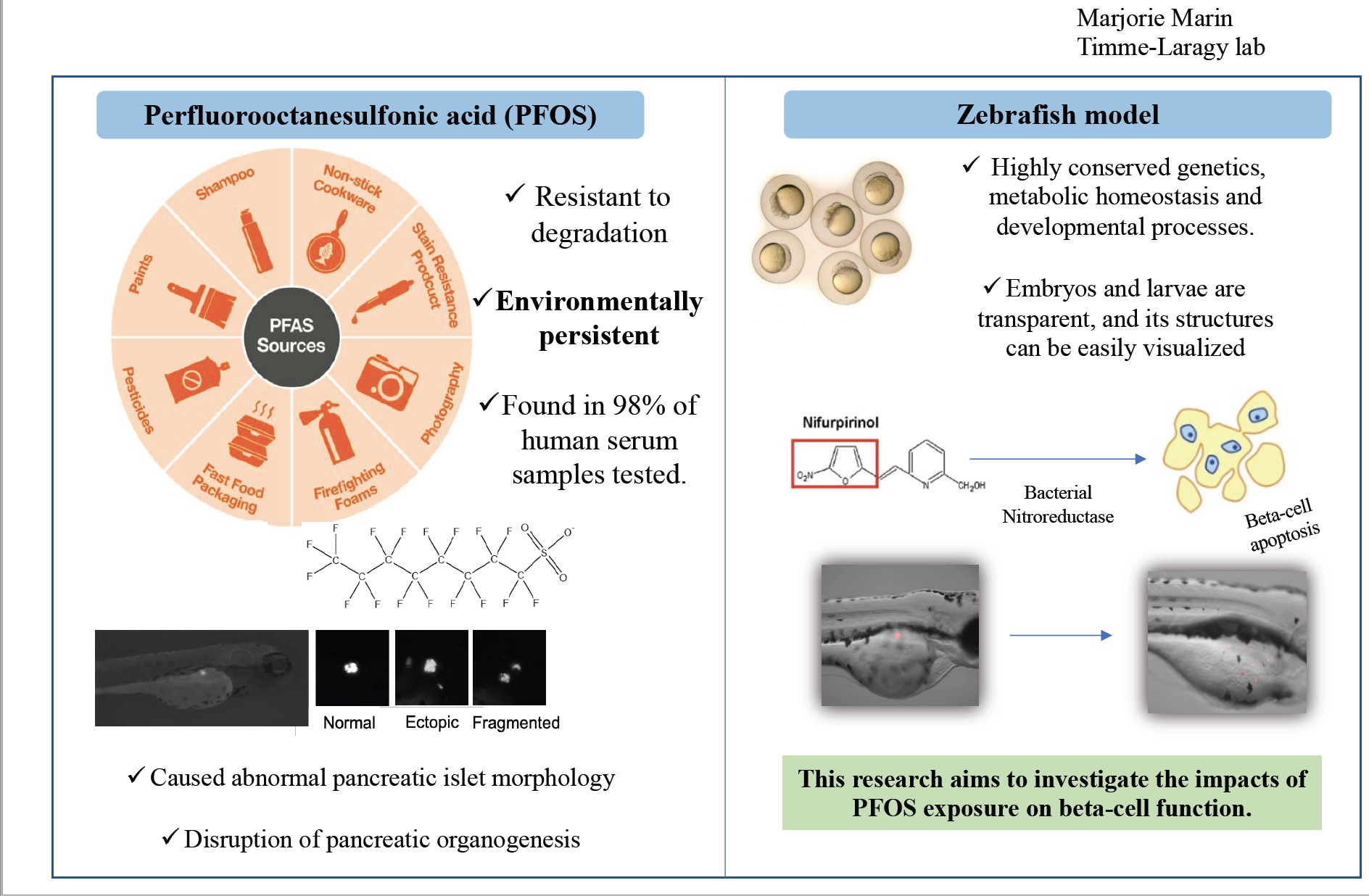 Marjorie Marin, NIH Trainee 2020-2022
Marjorie Marin, NIH Trainee 2020-2022
Graduate Program: Public Heath
Lab: Alicia Timme-Laragy
Research Interests: Understanding how early life exposure to environmental contaminants like per- and polyfluoroalkyl substances (PFAS) impact the developing pancreas and beta-cell function.
Research Summary
Per- and polyfluoroalkyl substances (PFAS) are a group of man-made organic compounds used as surfactants that are resistant to degradation and highly persistent in the environment. The substances in this group are structurally similar, and they are widely used in the manufacturing processes of several products, including non-stick materials, water repellent coating, cleaning products and firefighting foams. These compounds are widely spread and have been found in 98% of the human serum samples tested. Epidemiological and experimental animal studies have linked exposures to Perfluorooctane sulfonate (PFOS), a legacy PFAS, to several adverse health outcomes including metabolic dysfunction.
During recent decades research has shown that the destruction or dysregulation of insulin-producing beta-cells has been associated with chemical exposure to environmental toxicants during developmental stages of life. Recently, our research group showed that embryonic exposure to PFOS caused abnormal pancreatic islet morphology and disruption of pancreatic organogenesis in zebrafish (Danio rerio). Our lab is currently optimizing a method to investigate beta-cell function by using a transgenic zebrafish in which we are able to selectively ablate the insulin-producing cells creating a ‘diabetic-like’ state in the zebrafish. The lack of effective insulin production is part of all main types of diabetes (type 1, type 2 and gestational diabetes), but little is known about whether or not exposure to environmental contaminants like PFOS affects insulin folding and aggregation in the pancreatic beta-cells. Therefore, we will also use in vitro studies to specifically look at insulin misfolding and indicators of Endoplasmic Reticulum stress upon exposures to PFAS.
Considering that new therapies involving restoration of functional beta-cell are being explored as an alternative treatment and the current burden of diabetes in the U.S, understanding how exposure to toxicants affects the developing and function of pancreatic beta-cells is highly important.

